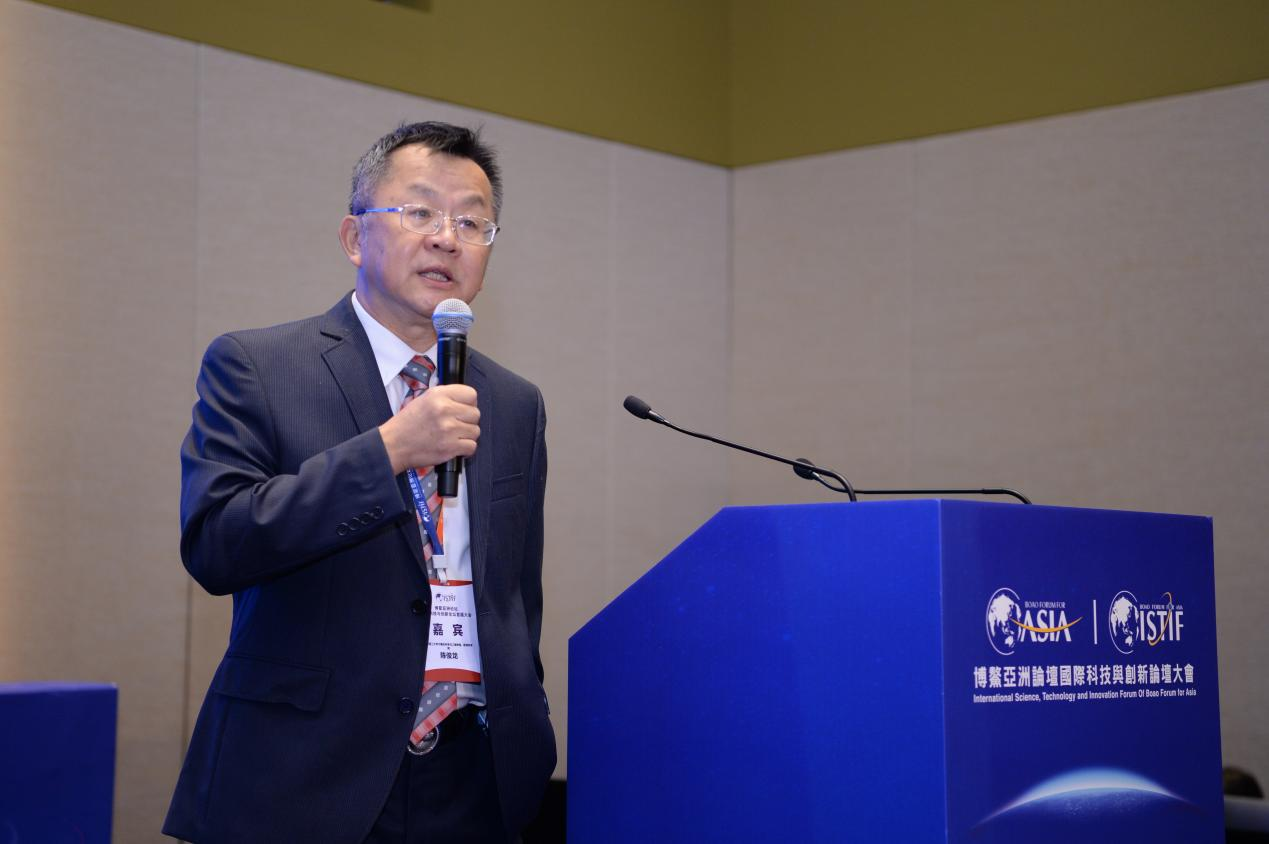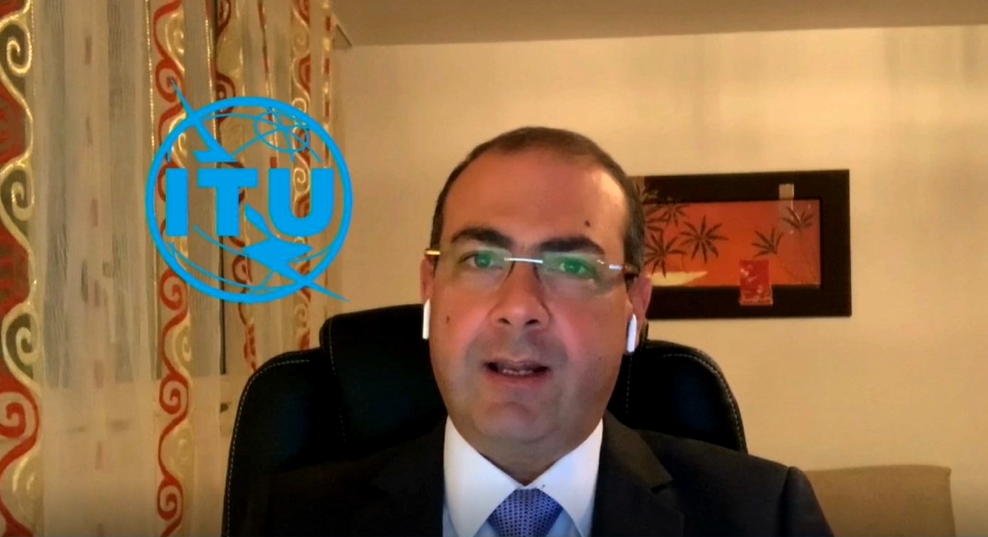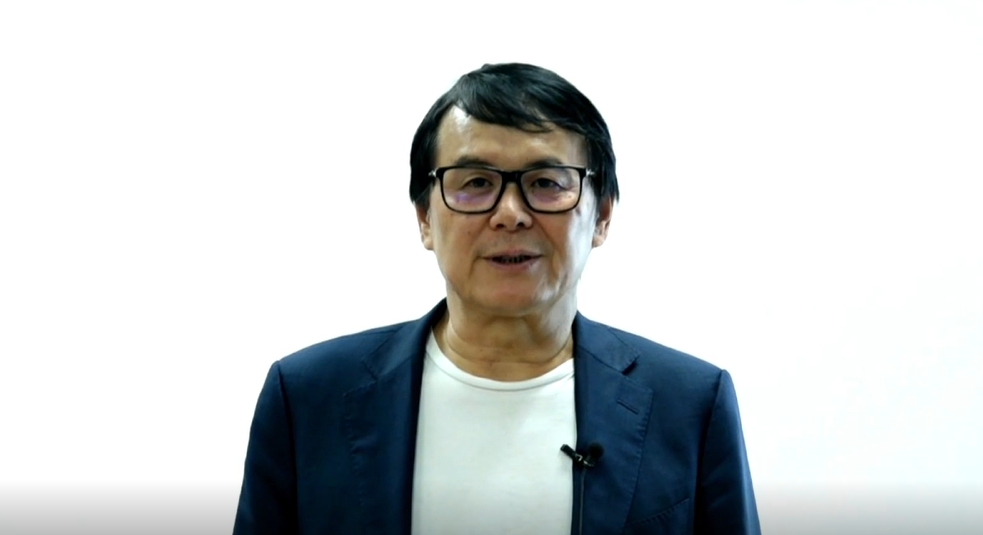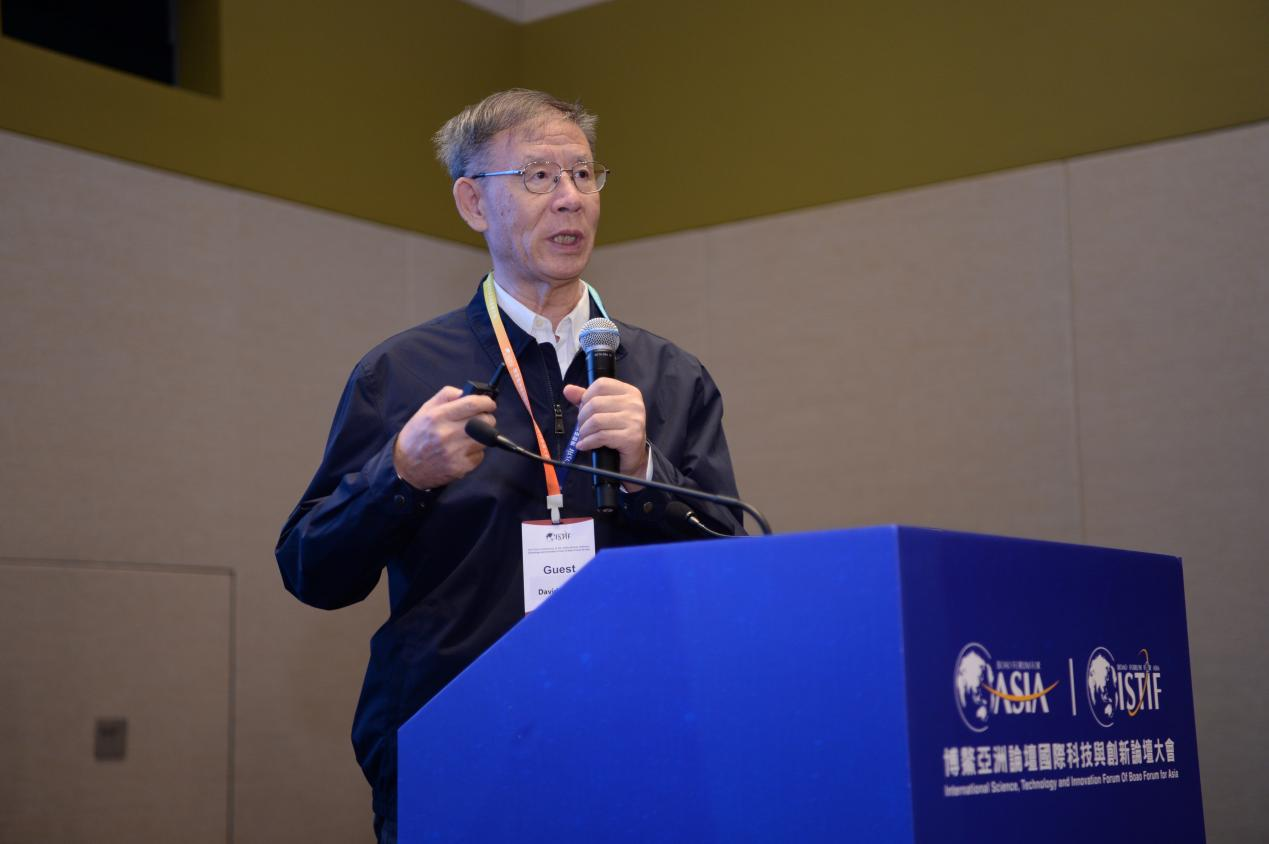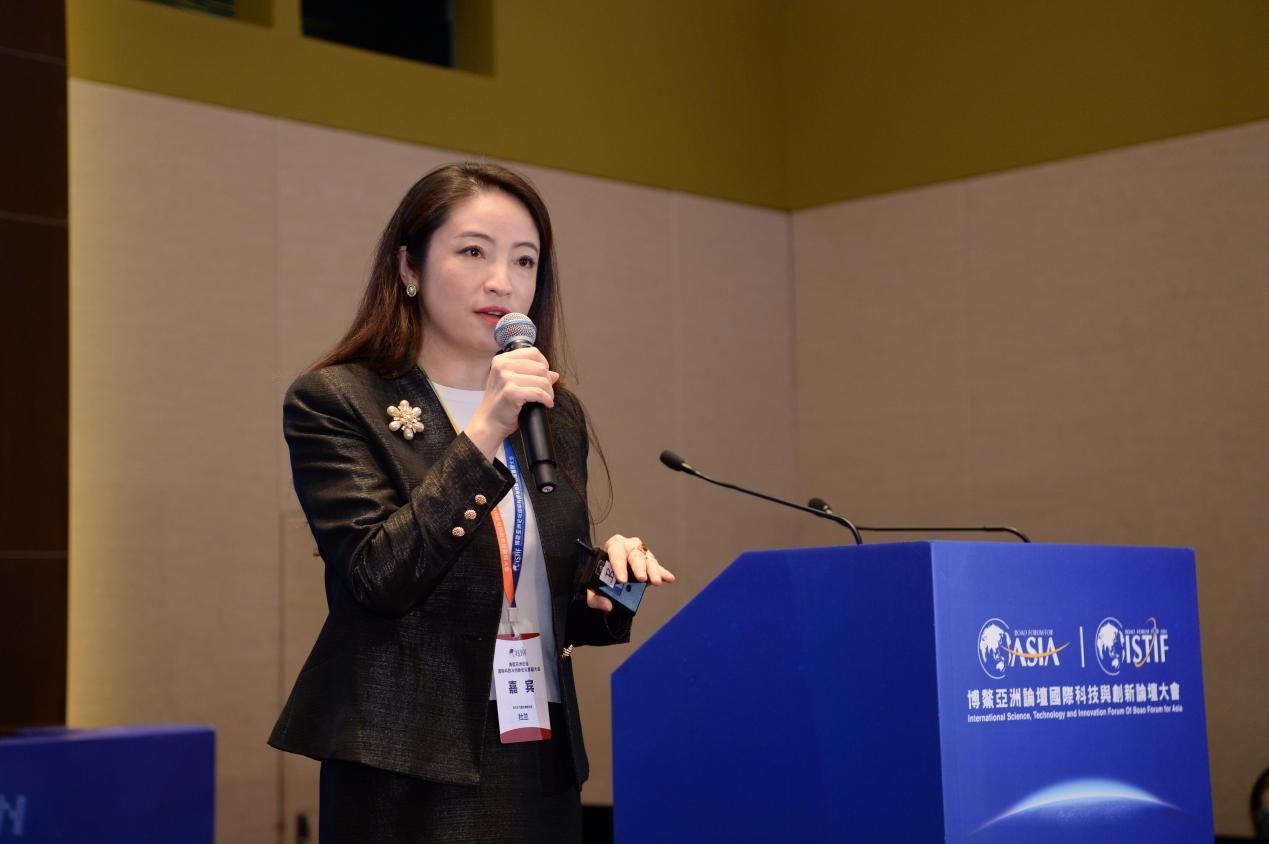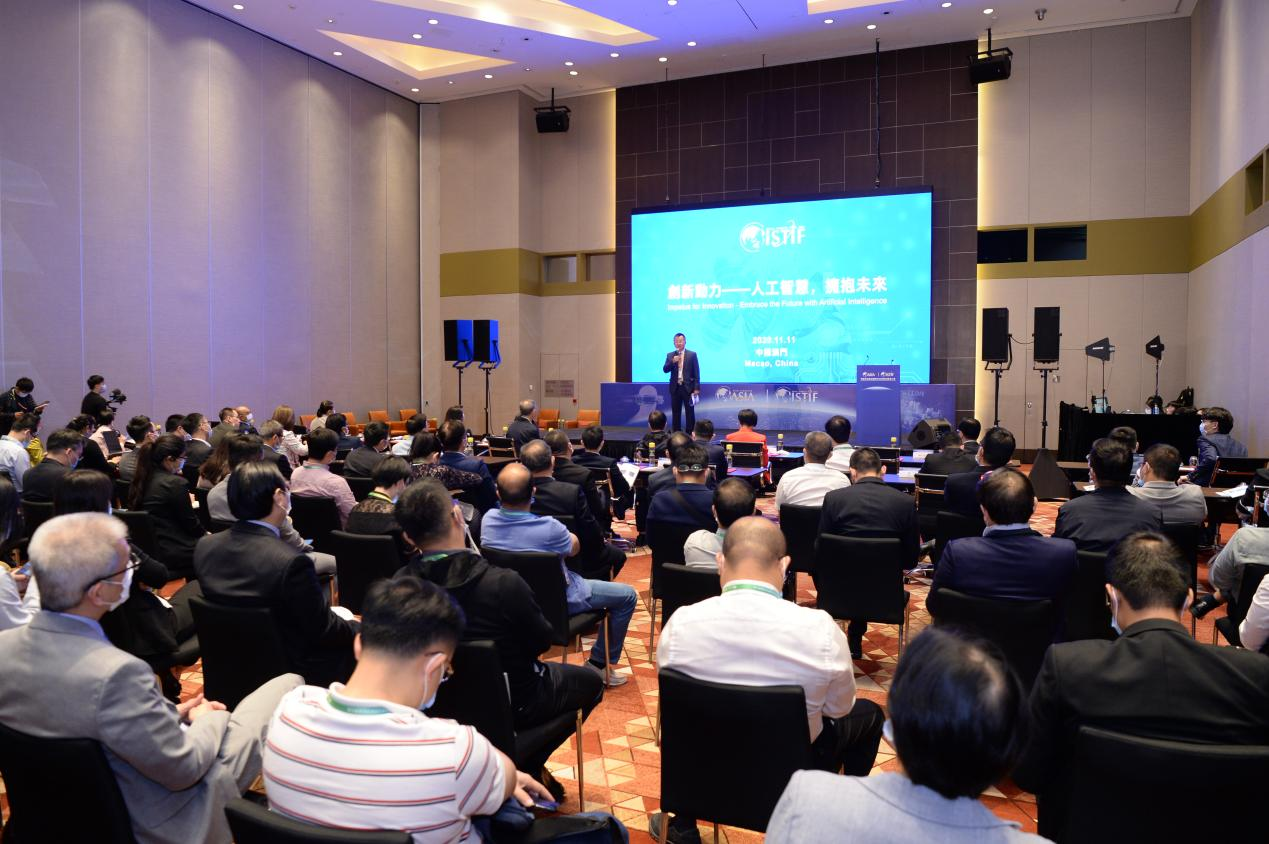The rapid development of artificial intelligence has profoundly changed human social life. It is accumulating enormous energy for industrial change, forming new demands for intelligence in all fields from macro to micro, giving rise to new products, new technologies, new industries, new forms of business and new models, triggering major changes in the economic structure, and achieving an overall leap in social productivity.
The session “Impetus for Innovation - Embrace the Future with Artificial Intelligence” was moderated by C. L. Philip Chen, IEEE/AAAS/IAPR/CAA/HKIE Fellow, Editor-in-Chief, IEEE Transactions on Cybernetics. Hani Eskandar, Senior Coordinator – Digital Services Telecommunication Development Bureau (BDT)International Telecommunication Union (ITU); Dai Qionghai, Academician of the Chinese Academy of Engineering, President of the Chinese Society for Artificial Intelligence, and Dean of the School of Informatics at Tsinghua University; Prof. Imre J. Rudas, Life Fellow of IEEE and President of the IEEE Systems; Zhang Dapeng, Fellow of the Royal Society of Canada, A Croucher Senior Research Fellow, Distinguished Speaker of the IEEE Computer Society, An IEEE Life Fellow and an IAPR Fellow; Doranda Doo, Senior Vice President of iFLYTEK and president of Guangdong Intelligent Innovation Association; Tu Weiwei,AstraZeneca Global Vice President; Jiang Chaohui, Founder and CTO of LeapFive focuses on the current situation of the AI industry and the developing trend of the most cutting-edge technologies, and discussed how AI can empower the industry and its future prospects.
Artificial intelligence relies on an open platform to complete intelligent decision-making through real-time calculation of the data carried by the platform, so computing power is an important indicator for judging its performance. Dai Qionghai pointed out that artificial intelligence currently exists in the cognitive computing technology deficiencies, that is, the prevalent short board of "difficult to understand the relationship between the scene and the object", "the lack of human cognitive process of macro and micro loop interaction" . He believed that the future of the new generation of AI will bring multi-dimensional and multi-source perceptual equipment, algorithms and systems and brain science into AI to fill the existing shortcomings, which is also echoed by Imre J. Rudas, who said that deep learning will be the focus of the development of new generation of AI, which will help AI accelerate the adaptation to more complex environments. On the other hand, Tu Weiwei believed that AI would face the challenge of diverse and complex data processing in the future, and data security is an issue that the AI industry must consider.
Artificial Intelligence brings great impact to human social life in the new era. Chen Junlong said that AI will play a comprehensive role in various fields such as manufacturing, driving, home and city, providing a high-quality technical foundation for the construction of digital economy. Artificial intelligence empowers industries and can bring great efficacy to the economy and society, such as AI-assisted capture of biological body surface data for more non-destructive and standardized Chinese medicine treatment plans demonstrated by Zhang Dapeng, and the application of AI and cloud computing to reduce losses in agricultural production demonstrated by Hani Eskandar.
The widespread application of artificial intelligence will directly impact the status of human jobs. According to Doranda Doo, in the future, AI can empower practitioners in various industries through barrier-free interpersonal communication, helping them learn the expert knowledge of other industries to realize cross-industry employment and home-based employment. On the other hand, the wide application of AI will eliminate a considerable degree of jobs. Jiang Zhaohui believed that low-social, low-skilled, structured jobs will be completely replaced, and the future form of work that combines humans and machines will become mainstream.
